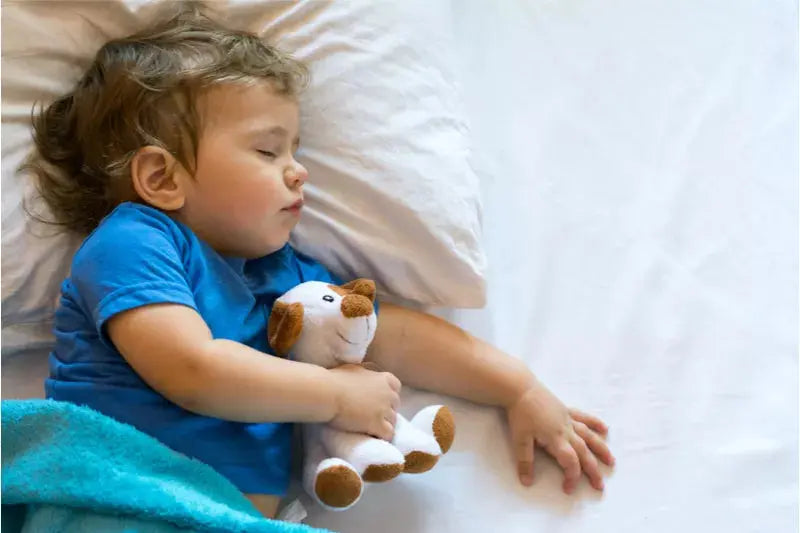Lack of sleep affects our behaviour and state of mind and contributes to children’s mood swings – sleep deprivation makes it harder for them to control their moods. It’s essential for children to get good quality sleep, this means getting to sleep and staying asleep. Children have most of their deep sleep during the first few hours after falling asleep. They then wake briefly as they cycle between light sleep and dreaming. In order to stay asleep, children must be able to fall back to sleep themselves after these brief waking periods.
It seems obvious that what a child does right before they go to bed will affect how they sleep, but did you know that a child’s inability to fall asleep could also be linked to their daytime habits?
The good news is, changing their daytime habits and establishing a pre-bedtime routine will help you to work with your child to get quality rest and to get rid of those sleep problems once and for all!
Bedtime rituals that support better sleep
- Have a relaxing pre-bedtime routine – bath, story, lullaby, sleep
- Use the bed only for sleep and a bedtime story - the brain will subconsciously start to associate the bed with other activities if not
- Keep the same sleep schedule even on weekends and holidays - this will make it easier for your child to wake up and fall asleep naturally
- Positive reinforcement - reward them when they stay in bed all night.
Food and sleep
- Don’t let them go to bed too hungry or too full - heavy meals within an hour or two of bedtime may keep children awake, a light snack is ok
- Avoid caffeinated products in the afternoon and evening – soft drinks, chocolate etc
- A healthy breakfast in the morning will help to kick start your child’s body clock.
Bedroom
- Make sure their room is comfortable
- Keep noise and light to a minimum
- If your child is afraid of the dark, a low-levelnightlightis great
- Most people sleep best in a slightly cool room (around 18 degrees).
- Make sure your child’s bed is not overloaded with toys, as that can become distracting at bedtime. One or two is fine.
- For older children, store electronic devices outside of the bedroom – to help avoid temptation!
- Remove blue light at least one hour before bedtime – screens, TV etc - the blue light emitted from these devices suppresses the body’s melatonin levels and makes it more difficult to fall asleep.
Build daytime habits to support bedtime rest
- Encourage an active lifestyle. Regular exercise prevents restlessness at night. An hour every day is the recommended amount. However, try to keep your children from vigorous activity within three hours of bedtime.
- Ensure natural light exposure in the morning. This will help them to feel alert during the day and sleepy at bedtime.
Also, here is a link to ourfear of the dark blogwhich may help if your child is afraid or struggles with nightmares.
I hope that our tips to help your child get quality sleep helps your family. Please let me know how you go.



